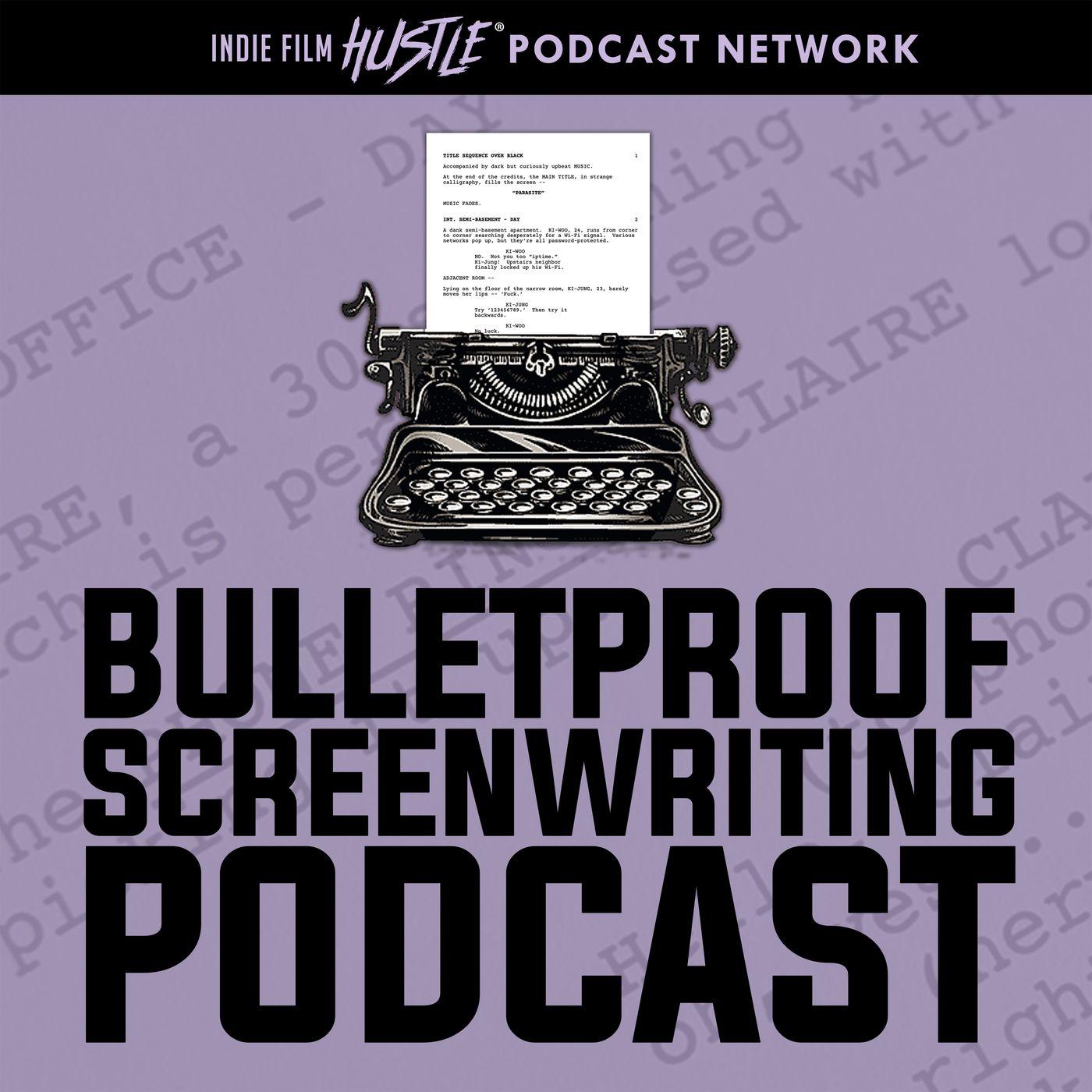

The Bulletproof Screenwriting Podcast shows you how to make your screenplays bulletproof. Weekly interviews with Oscar® and Emmy® award winning screenwriters, story specialists, best-selling authors, Hollywood agents and managers, and industry insiders. We cover every aspect of the screenwriting process. This is the screenwriting podcast for the rest of us. No fluff. No BS. Just straight talk that will help you on your screenwriting journey.<br /><br />Some of the past guests include 3X Oscar® Winning Writer/Director Oliver Stone, Eric Roth (Dune, Forest Gump), Edgar Wright (Shaun of the Dead), Richard Linklater (Boyhood, Slacker) James V. Hart (Dracula, Hook), John August (Big Fish, Aladdin), Jim Uhls ( Fight Club), Peter Rader (Waterworld), Diane Drake (What Women Want), Daniel Knauf (Carnival, Blacklist), Derek Kolstad (John Wick) and Pen Densham (Robin Hood, Backdraft) to name a few.<br /><br />Become a supporter of this podcast: <a href="https://www.spreaker.com/podcast/bulletproof-screenwriting-podcast--2881148/support?utm_source=rss&utm_medium=rss&utm_campaign=rss">https://www.spreaker.com/podcast/bulletproof-screenwriting-podcast--2881148/support</a>.
Amanda is a wife. A mother. A blogger. A Christian.
A charming, beautiful, bubbly, young woman who lives life to the fullest.
But Amanda is dying, with a secret she doesn’t want anyone to know.
She starts a blog detailing her cancer journey, and becomes an inspiration, touching and
captivating her local community as well as followers all over the world.
Until one day investigative producer Nancy gets an anonymous tip telling her to look at Amanda’s
blog, setting Nancy on an unimaginable road to uncover Amanda’s secret.
Award winning journalist Charlie Webster explores this unbelievable and bizarre, but
all-too-real tale, of a woman from San Jose, California whose secret ripped a family apart and
left a community in shock.
Scamanda is the true story of a woman whose own words held the key to her secret.
New episodes every Monday.
Follow Scamanda on Apple Podcasts, Spotify, or wherever you listen.
Amanda’s blog posts are read by actor Kendall Horn.